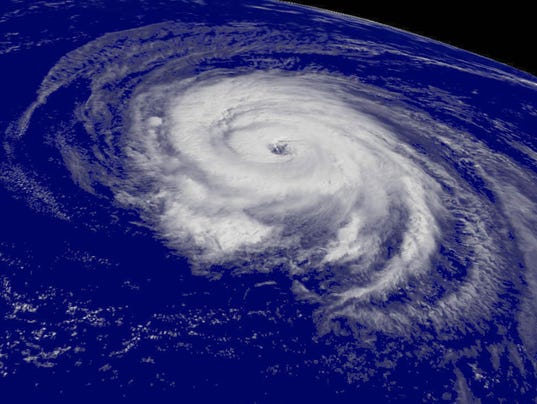Strict Standards: Only variables should be assigned by reference in /home/noahjames7/public_html/modules/mod_flexi_customcode/tmpl/default.php on line 24
Strict Standards: Non-static method modFlexiCustomCode::parsePHPviaFile() should not be called statically in /home/noahjames7/public_html/modules/mod_flexi_customcode/tmpl/default.php on line 54
Strict Standards: Only variables should be assigned by reference in /home/noahjames7/public_html/components/com_grid/GridBuilder.php on line 29
This week is the typical peak of hurricane season, and it's been quiet this year with no big storms on the horizon.
Only two hurricanes — Danny and Fred — formed in the Atlantic basin so far this year, and neither came near the U.S. coast, according to the National Hurricane Center.
The Atlantic basin includes the Caribbean and the Gulf of Mexico, as well as the Atlantic Ocean. Five tropical storms also formed, but only two — Ana and Bill — directly affected the U.S.
As forecast, El Niño wind patterns are tearing apart developing hurricanes, AccuWeather reported. El Niño is a natural warming of tropical Pacific Ocean water that affects weather around the world.
But the same El Niño has fueled the most active season on record in the Pacific Ocean with nine hurricanes, but none hit land, said hurricane expert Phil Klotzbach of Colorado State University.
Quiet Atlantic hurricane seasons such as this year may become more commonplace, a new study says.
The study in the British journal Nature Geoscience said the Atlantic could be ending a 20-year stretch of unusually active hurricane seasons that began in 1995. This included 2004 and 2005, when Katrina battered the Gulf Coast.
Klotzbach, lead author of the study that came out Monday, said a natural cycle may be responsible for patterns of active or quiet hurricane seasons, and the Atlantic is now entering an off cycle.
The cycles often last 25-35 years, he said, and go back and forth between salty, warm ocean water and less salty, cooler ocean water.
Warmer, saltier water helps spur hurricanes, while chillier, less salty water brings fewer and weaker storms, Klotzbach said.
Weather scientists call it the thermohaline circulation ("thermo" means temperature and "haline" means salty).
Klotzbach said the U.S. could be entering a new, quieter period, similar to the one that lasted from 1970 to 1994. But he said it is too soon to know for certain that one has begun.
Other scientists aren't sure about the study. "I think they're pretty much wrong about this,'' MIT meteorology professor Kerry Emanuel told the Associated Press. "That paper is not backed by a lot of evidence."
Emanuel, who also specializes in hurricane research, thinks the quiet period of hurricanes in the 1970s and '80s is connected to sulfur pollution and the following busy period is a result of cleaner air, the AP reported.
Read or Share this story: http://usat.ly/1UFaoXy
Strict Standards: Only variables should be assigned by reference in /home/noahjames7/public_html/modules/mod_flexi_customcode/tmpl/default.php on line 24
Strict Standards: Non-static method modFlexiCustomCode::parsePHPviaFile() should not be called statically in /home/noahjames7/public_html/modules/mod_flexi_customcode/tmpl/default.php on line 54
Find out more by searching for it!

